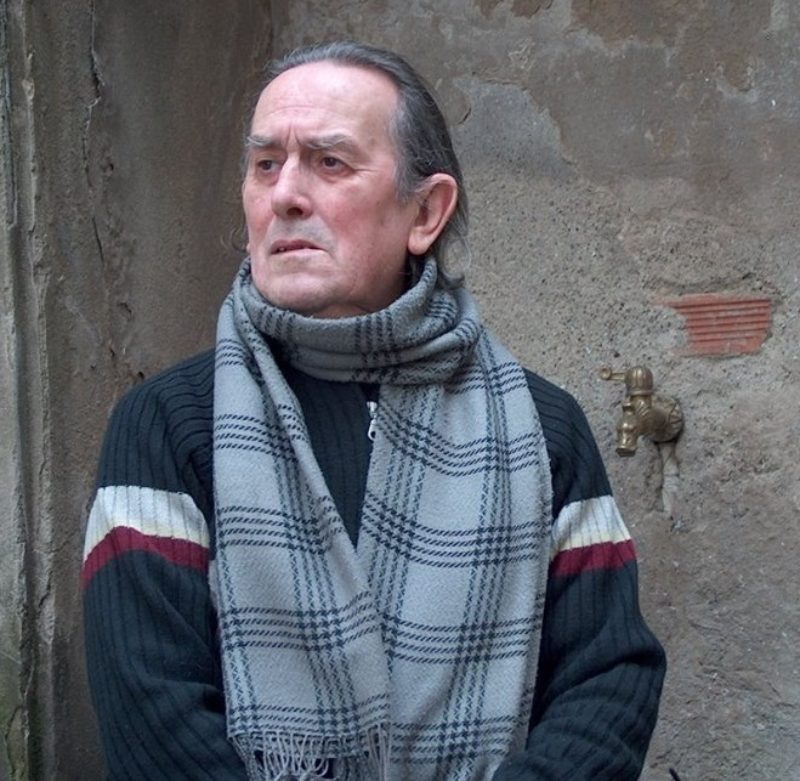Lino Capra Vaccina

Jannis Van de Sande
How are you doing? What have you been up to lately?
Lino Capra Vaccina
I have been playing several live sets in Italy. I’ve recorded a new CD called “Arcaico Armonico”, released in December 2015 on Dark Companion Records.
JVDS
Before you became known as a composer, you played in a few bands. Could you tell us a bit about these first musical encounters, and how they led up to your career as a composer?
LCV
I started very young, in 1971, as co-founder of a group named “Aktuala”. Actually, we researched and explored ethnic music, and were precursors of so-called “world music”. Over the years, I’ve worked with many musicians, such as Franco Battiato. After my experience with the group, for which I was already co-writing songs, I decided to develop a personal language, and a compositional style within a framework of experimentation and sound research, trying to find a unique original sound. That’s when I started writing the songs of “Antico Adagio” and the following recordings. At the same time, after having studied African and Oriental ethnic music, I studied composition, percussion and piano at the Civic Music School of Milan.
JVDS
Antico Adagio is clearly influenced by the American minimalists – you’ve named Reich and Glass as important sources of inspiration – but you developed a very original take on this tradition. In many ways, it sounds like a European version of minimalism, would you agree on that? Could you explain which influences led to the creation of Antico Adagio?
LCV
Yes, these composers (also La Monte Young, Terry Riley,…) are more to me than just a source of inspiration. I see them as kindred spirits when it comes to musical ideas. But, as you say, I think that I’ve developed a very personal language, that could be defined as European minimalism, even though I do not like these kind of definitions. The creation of Antico Adagio was born out of a desire for experimentation and sound research. Rather than influences, I would say there’s a kind of similarity in musical views.
JVDS
Are you familiar with the work of Belgian composer Karel Goeyvaerts? In the late seventies, he too employed aspects of minimalism in his work.
LCV
I do not know much about Goeyvaerts. I’ve heard about some of his works and found them interesting, in particular those ones less linked to the serial technique.
JVDS
Percussion plays a key role in your work, why?
LCV
Percussion instruments have infinite possibilities in sound, timbre, frequency, that allow me to research and experiment, much more than others. Moreover, they are the most ancient instruments, but able to produce contemporary and futuristic sound at the same time.
JVDS
Your works have an imaginative feel to them, and I often perceive them as sonic explorations. Would you agree on that from your perspective?
LCV
I agree with your point of view, I am very glad that these two aspects are perceivable, because I think they are absolutely necessary in my kind of music. Thank you very much.
Could you tell us something about your working process? How are your works created? Do you write a lot of it down?
LCV
Often I start from an idea of research and sound experimentation, which has the origin of music as its foundation: the sound. Then I go on with the origin of the sound: the frequency, to get to the origin of the frequency: the silence. My compositional process starts by choosing among these elements those that have the most profound psychophysical and interior effect on me. Then I go on by choosing the instruments, the architecture, the shape and so on.
JVDS
It’s interesting how you perform most of your music yourself. Do you think of playing as inherent to composing? Does improvisation play an important role in the conception of your works?
LCV
Improvisation plays an extremely important role at the very beginning, when I’m researching different possibilities and experimenting with sound. Then, in the phase of elaborating the structure and defining the coding, I do not use it at all. During my live performances I do improvise again, in order to make them one in a million and unforgettable, every time.
JVDS
Are you currently working on new music?
LCV
I have planned to play a series of concerts between March and June, both in Italy and abroad, during which I will introduce my new CD Arcaico Armonico. At the moment I am also working on the creation of new songs, that will be part of a new sound project for next year.
JVDS
What can we expect from your liveshow?
LCV
I would say that to enjoy the pleasure, curiosity, discovery, it would be better to have a listening experience without expectations, so as to give the auditive sense the right possibility of a “feel to feel”. Have a nice listening.